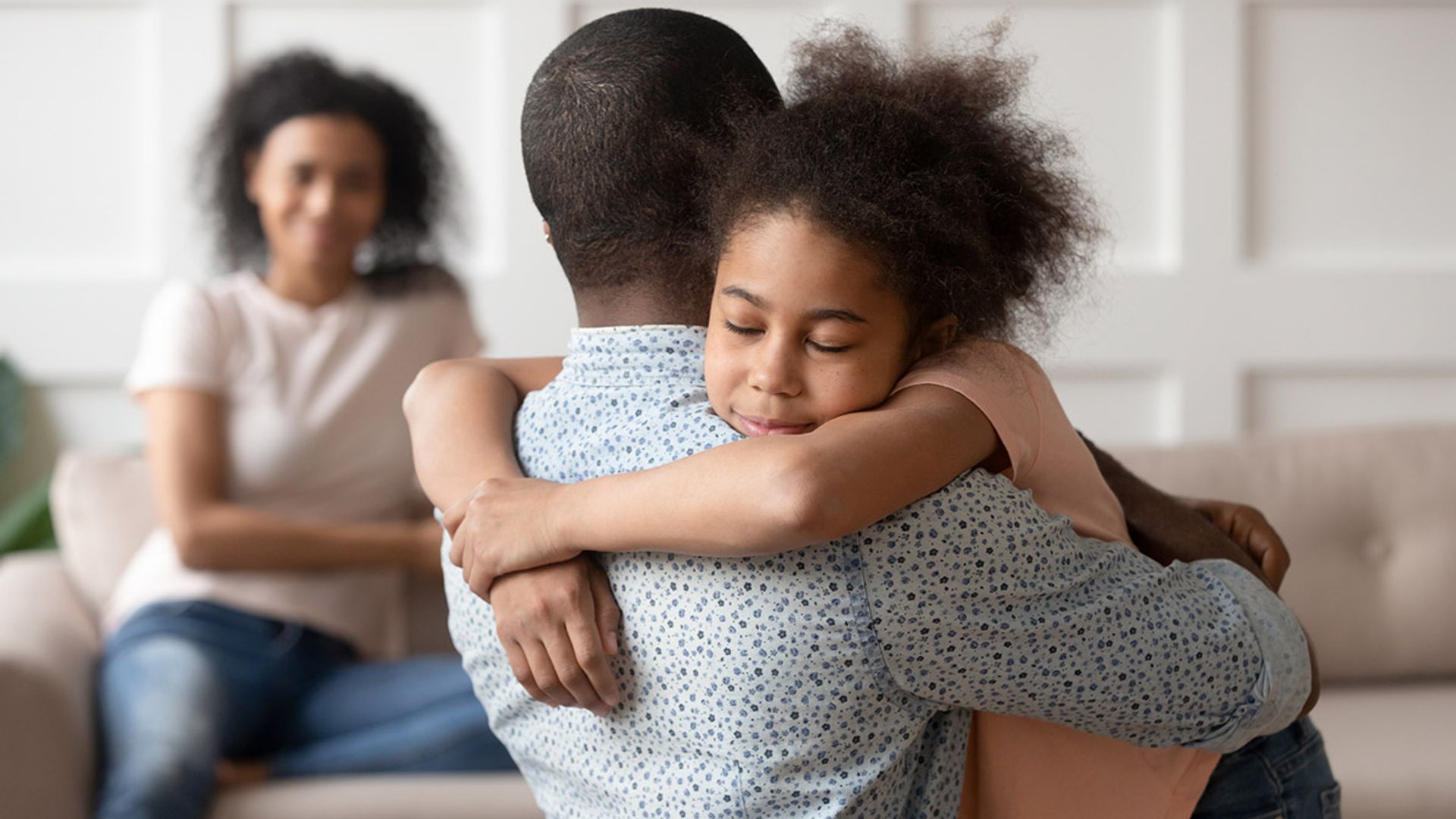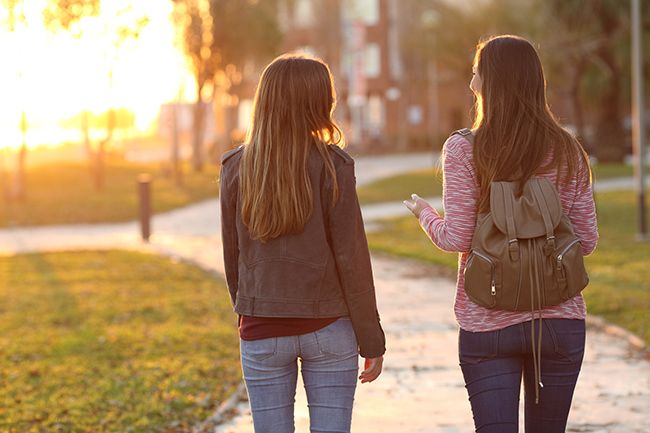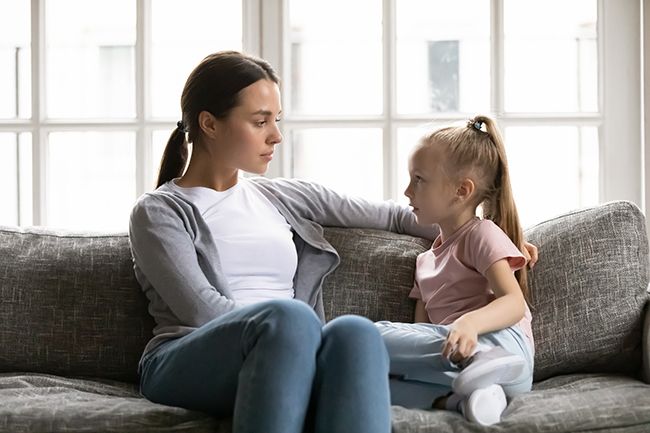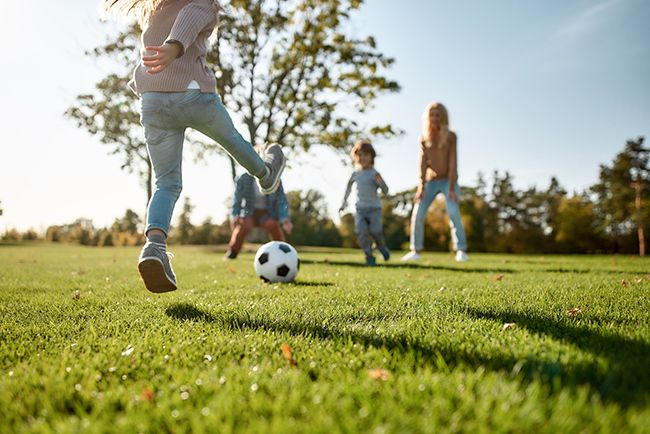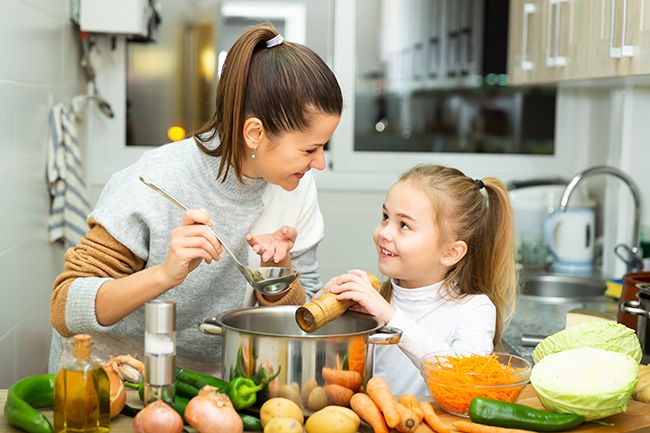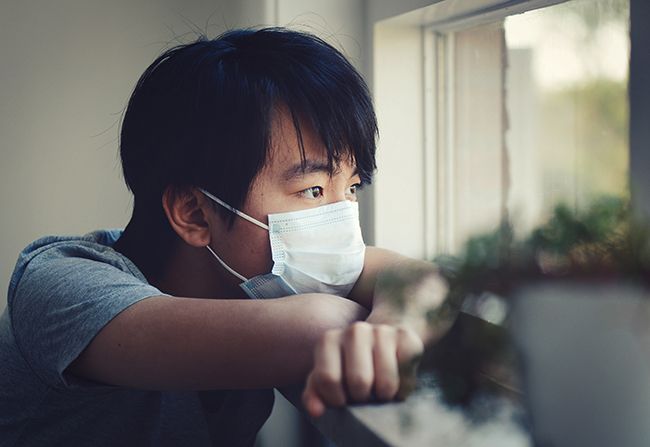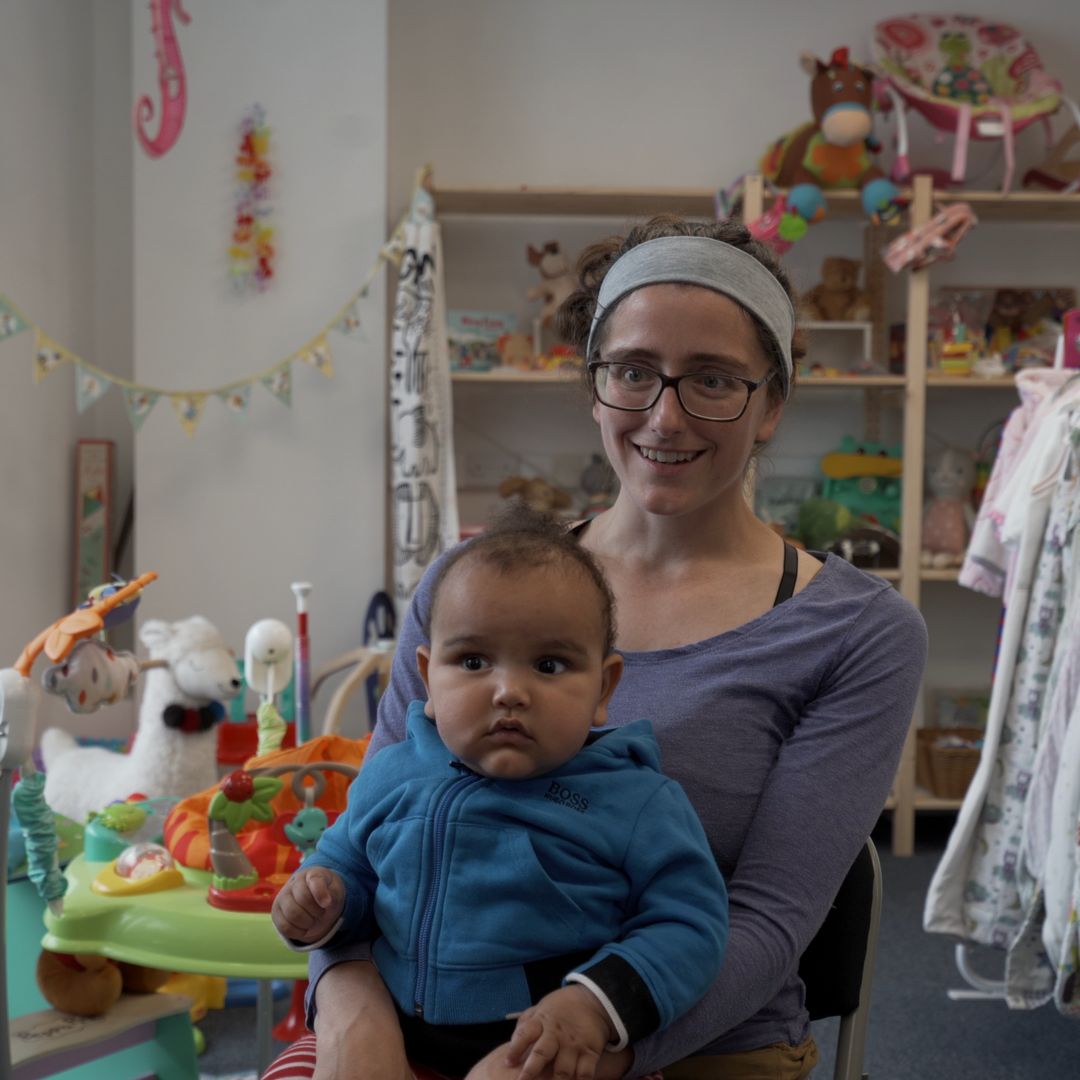The COVID-19 pandemic has changed everyone's way of life – we're all finding this 'new normal' extremely tough, from restricted socialising to constant worries over health.
Two groups of people particularly affected are children and teenagers, for whom interaction with friends is their whole world.
Consultants at the Priory Clinics report seeing a marked increase in depression in young people during the pandemic, and missing out on normal life experiences can have serious consequences for young people’s mental health.
MORE: 15 celebrities who have bravely opened up about mental health
WATCH: Prince William discusses mental health with David Beckham
Dr Hayley Van Zwanenberg, a Consultant Child and Adolescent Psychiatrist at Priory’s Wellbeing Centre in Oxford says:
"I’ve almost stopped asking my normal question of ‘is there anything you are looking forward to at the moment?’ I just get a long list of things people would have been doing if it wasn't for Covid-19, such as concerts, parties, family gatherings and holidays."
Yes, schools may be open, but children are currently forgoing their normal sports and activity clubs, playdates, birthday parties and social gatherings for teenagers – as well as missing meeting up with extended family members. Classrooms are chilly with the necessary ventilation and there's uncertainty over GCSE's in 2021.
MORE: Suffering from SAD? These are the top-rated SAD lamps and light-therapy boxes
Dr Hamilton McBrien, a Child and Adolescent Consultant Psychiatrist at Priory Hospital, Roehampton, warns this new environment is "a source of anxiety for many children, and alarming to some".
Teenagers, in particular, can struggle with lockdown, because they are at a “developmentally critical” stage of their lives. Remember your teenage years? It's when we built our confidence and sought freedom with friends, but that's not possible right now.
So how do parents support their children and teenagers through this difficult time? Here, experts address 5 common concerns and share their advice…
How can I talk to my children? They seem so frustrated and fed up all the time
"Think about the language and conversations in the family home", says Dr Van Zwanenberg. "There is no doubt that people can become irritable if they are trapped in the same space for prolonged periods. Children can say hurtful things they do not mean out of frustration."
Dr Van Zwanenberg recommends "having a family rule that things should not be said unless they are true, kind, and necessary", to remind everyone of the need to get through this together.
Dr McBrien agrees: "Don’t rush to dismiss them, but take time to listen and understand what your child is thinking and why." The key is to empathise, so that they know they are not the only person who is struggling. By talking through the concerns you share, your child can learn from you about controlling and managing anxiety, say the experts.
MORE: Cosmic Kids' Jaime Amor shares 11 yoga and mindfulness exercises for children
How do I stop my child’s anxieties?
"Let them see that they have control over their own and others’ safety," says Dr McBrien. "Help them to identify what you are all doing to stay safe, such as social distancing, washing your hands frequently, and wearing facemasks."
It is still possible to visit parks and open spaces with your child and exercise is recommended. Dr McBrien says taking a "graded approach" to these visits is the best way to put your child’s worries to rest.
"Opt for quiet open spaces initially, away from where there might be larger gatherings and busier high streets," he says. More ambitious trips can take place later on, experts suggest, once your child is more comfortable.
How can I make my child feel happier?
During lockdown, it is all too easy to slip into a routine of inactivity, with each day much like the last. Dr Van Zwanenberg says a way around this is to "put in place a small pleasure for everyone, every day".
The activity needn't cost money and it should involve both of you, with the point being "the person giving and the person receiving feel good". According to Dr Van Zwanenberg, "small changes like this can make a big difference to otherwise routine days".
How can I get my child off their phone and social media?
Even without the pressures of the pandemic, parents are often right to be concerned about their children’s use of social media and smartphones. Dr McBrien says it is important to manage this, but "without being overly draconian".
"Leading by example is often more effective”, advises Dr McBrien, so ensure you limit yout own screen time and that your children see you do this. He suggests that a digital detox "could be part of your family’s daily routine".
Additionally, be sure to educate yourself about the correct facts of the pandemic, using reputable sources, and make sure your children know "that they should not believe all that they read", he adds.
I think my child is suffering from depression. What do I do?
Dr Van Zwanenberg has seen a "marked increase in depression" amongst children and teenagers since the beginning of the pandemic.
She says that parents should watch for signs that their children are developing depression. These signs could include "isolating themselves from friends" perhaps by "declining online events" with their peers, which she says would be "unusual" in a well and happy teenager.
Another sign could be that the young person hardly notices the small happy events that others take pleasure from, such as being brought a surprise after school.
If a parent does spot these warning signs, they can seek help from their GP or a provider such as Priory, with help available online if necessary.
